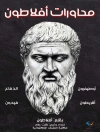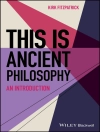Inazo Nitobe’s ‘Bushido, the Soul of Japan’ is a seminal work that takes a deep dive into the world of the samurai code of conduct, known as Bushido. Through a series of profound reflections and historical anecdotes, Nitobe explores the underlying principles and values that defined the samurai way of life, offering readers a captivating insight into Japanese culture and philosophy. Written in a lyrical and contemplative style, the book provides a rich literary context that immerses readers in the essence of Bushido and its significance in Japanese society. Nitobe’s meticulous research and keen observations create a compelling narrative that sheds light on the moral and ethical foundations of the samurai code, making it a must-read for anyone interested in Japanese history and culture. Born into a prominent Japanese family and having studied in both Japan and Western countries, Nitobe’s diverse background and deep understanding of various cultures inspired him to write ‘Bushido, the Soul of Japan’ as a bridge between East and West. His multicultural perspective adds a unique layer of authenticity and insight to the book, making it a valuable resource for scholars and enthusiasts alike. I highly recommend ‘Bushido, the Soul of Japan’ to readers seeking a profound exploration of Japanese philosophy and a greater understanding of the samurai ethos.
Sobre el autor
Inazo Nitobe (1862-1933) was a Japanese scholar, educator, diplomat, and author, recognized for his endeavors to bridge the cultural gap between East and West during the early 20th century. Born during the final years of the Tokugawa shogunate, Nitobe was raised at a time when Japan was undergoing rapid modernization and westernization. He pursued higher education in the United States and Germany, embodying a synthesis of Western intellectualism and Japanese values. An esteemed writer, Nitobe is most celebrated for his work ‘Bushido: The Soul of Japan’, first published in 1900. It elucidates the moral principles of the samurai, or Bushido, contextualizing them within a framework appealing to Western audiences (Nitobe, 1900). His literary style combines eloquent narrative and philosophical discourse, aiming to portray the underlying ethos of Japanese culture and the authenticity of its chivalric traditions. Beyond ‘Bushido’, Nitobe’s scholarly corpus includes works on education, economy, and international relations, each illuminating his lifelong dedication to fostering cross-cultural understanding. His legacy endures as a pioneer who articulated the intricacies of Japanese thought to the global community.












